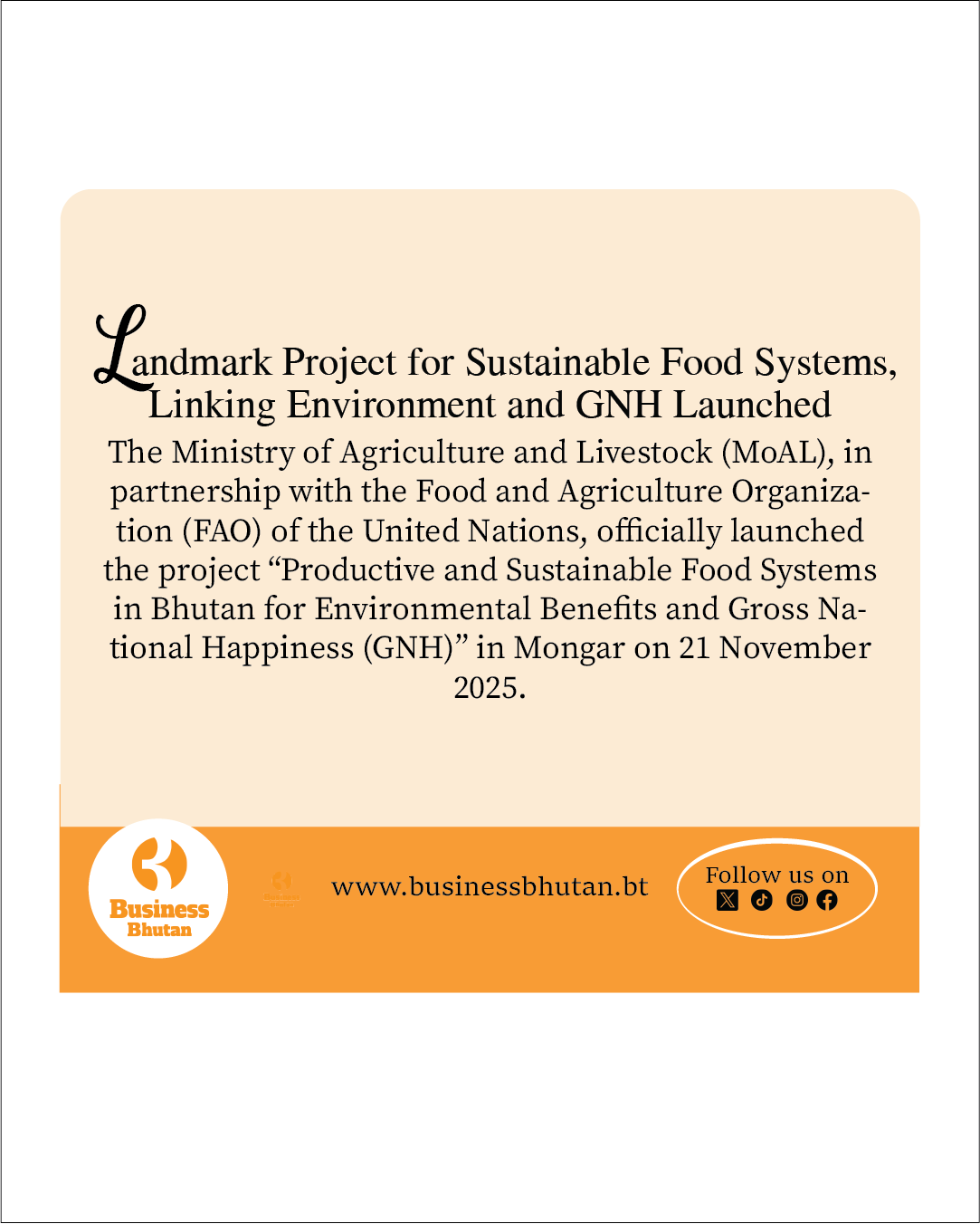There is no room for misplaced compassion. Those corrupt should be shown the door
In order to promote integrity and “ensure a clean business environment in the construction sector,” the Construction Association of Bhutan (CAB) signed a Memorandum of Understanding (MoU) with the Anti-Corruption Commission (ACC), today (August 15th. 2024). As mentioned in the press release it is a partnership, highlighting CAB’s dedication to foster “an ethical and transparent construction industry in Bhutan, acknowledging that corruption undermines socio-economic development and erodes public trust.”
The Construction industry in Bhutan is viewed as one area where corruption thrives in different ways. It can be the formation of syndicates, bribery to get a work or a payment, including advance; compromise in quality of work; bribery associated with delays in completing a project, use of sub standard materials, ghost employees and others.
There are cases of roads developing potholes a month after completion. Some works take double the time to complete. Construction companies are alleged for using materials of poorer quality and not those mentioned in the contract. Allegations of collusion between the procuring agencies and contractors are rife. Further, the press release on the MoU says that this initiative is expected to enhance public confidence in the construction industry, contributing to the overall development of Bhutan. This means that public confidence is low and has to be revamped. Alternatively, there are companies labeled as symbols of Integrity and highly respected.
While the press release says the ACC has recognized the crucial role the construction industry will play in Bhutan’s aspiration to become a developed nation and the emerging corruption risks that come with it, it cannot be denied that the ACC was not aware or it did not recognize, “the crucial role.” “By collaborating closely with CAB, the ACC aims to leverage its expertise and resources to ensure that the construction industry thrives within a framework of integrity and accountability.”
Meanwhile, a customized integrity and anti-corruption programs and tools under the theme ‘DAMTSI – Developing Accountable, Moral, & Transparent Systems and Institutions,’ aimed to build technical competence in safeguarding the credibility and reputation of the construction industry from corruption risks is to be developed.
Workshops for CAB will be coordinated by the ACC, which will focus on capacity development in emerging corporate governance standards, the creation of industry-specific business integrity programs, and the sharing of best practices among businesses both locally and internationally.
Other aspects of the MoU are promotion of joint efforts to review existing policies, regulations, and frameworks related to the construction industry, with the aim to identify systemic loopholes and recommend appropriate remedial measures, addressing immediate corruption risks and streamlining processes for sustainable socio-economic development.
Further, CAB will also work to raise awareness and promote existing anti-corruption standards and tools, such as the Code of Ethics, Conflict of Interest Management, and Integrity Vetting.
Important aspects of the MoU include, The CAB disassociating any member with ‘Adverse Record”, during Integrity Vetting conducted by the ACC from its membership and thus demonstrating a zero-stance against corruption. However, it is not clear if the penalty will be just disassociation and if it will have a time frame. If the aim is Zero Tolerance, the license itself should be terminated.
The MoU says CAB will report corruption matter to the ACC that has come to their knowledge or reported to them. This is one part of “Areas of cooperation and collaboration.” There are other important points, too.
Notwithstanding the importance of the current MoU, the Bhutanese grapevine has already labeled some Bhutanese Construction Firms as “corrupt.” Further, with sufficient financial resources, there are chances of companies winning cases. However, there are others who are respected for their integrity and quality of work. While contractors blame agencies and especially engineers, procuring agencies point fingers at rules and regulations etc.
Nonetheless, the current MoU could serve as the foundations for a corruption free construction industry. When some companies have earned the names as corruption free companies, there is no reason why all companies cannot get the same credit. Those corrupt should be shown the door. There is no room for misplaced compassion.



![Fresh Beginnings: Pasakha Vendors Gear Up for New Vegetable Market - Duplicate - [#16963] Fresh Beginnings: Pasakha Vendors Gear Up for New Vegetable Market - Duplicate - [#16963]](https://businessbhutan.bt/wp-content/uploads/2025/11/Asset-200.png)











